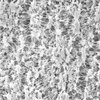KAA002 Sigma-AldrichCellular Senescence Assay
Cellular Senescence Assay Kits provide all the reagents required to efficiently detect SA-β-gal activity at pH 6.0 in cultured cells & tissue sections.
More>> Cellular Senescence Assay Kits provide all the reagents required to efficiently detect SA-β-gal activity at pH 6.0 in cultured cells & tissue sections. Less<<Recommended Products
Przegląd
| Replacement Information |
|---|
Tabela kluczowych gatunków
| Detection Methods |
|---|
| Chromogenic |
| References |
|---|
| Product Information | |
|---|---|
| Components |
|
| Detection method | Chromogenic |
| Quality Level | MQ100 |
| Applications | |
|---|---|
| Application | Cellular Senescence Assay Kits provide all the reagents required to efficiently detect SA-β-gal activity at pH 6.0 in cultured cells & tissue sections. |
| Biological Information |
|---|
| Physicochemical Information |
|---|
| Dimensions |
|---|
| Materials Information |
|---|
| Toxicological Information |
|---|
| Safety Information according to GHS |
|---|
| Safety Information |
|---|
| Packaging Information | |
|---|---|
| Material Size | 1 kit |
| Transport Information |
|---|
| Supplemental Information |
|---|
| Specifications |
|---|
| Global Trade Item Number | |
|---|---|
| Numer katalogowy | GTIN |
| KAA002 | 04053252009907 |
Documentation
Cellular Senescence Assay MSDS
| Title |
|---|
References
| Reference overview | Pub Med ID |
|---|---|
| Telomere-independent cellular senescence in human fetal cardiomyocytes Ball, Andrew J and Levine, Fred Aging Cell, 4(1):21-30 (2005) 2004 | 15659210
 |
| What has senescence got to do with cancer? Dimri, Goberdhan P Cancer Cell, 7: 505-12 (2005) 2004 Pokaż streszczenie | 15950900
 |
| Telomere shortening impairs organ regeneration by inhibiting cell cycle re-entry of a subpopulation of cells Satyanarayana, A, et al EMBO J, 22(15):4003-13 (2003) 2003 | 12881434
 |
| A senescence program controlled by p53 and p16INK4a contributes to the outcome of cancer therapy Schmitt, Clemens A, et al Cell, 109(3):335-46 (2002) 2002 | 12015983
 |
| Replicative senescence revisited. Marcotte, Richard and Wang, Eugenia J. Gerontol. A Biol. Sci. Med. Sci., 57: B257-69 (2002) 2002 Pokaż streszczenie | 12084796
 |
| Differential expression of thymosin beta-10 by early passage and senescent vascular endothelium is modulated by VPF/VEGF: evidence for senescent endothelial cells in vivo at sites of atherosclerosis Vasile, E, et al FASEB J, 15(2):458-66 (2001) 2001 | 11156961
 |
| Expression of senescence-associated beta-galactosidase in enlarged prostates from men with benign prostatic hyperplasia Choi, J, et al Urology, 56(1):160-6 (2000) 1999 | 10869659
 |
| Senescence and immortalization of human cells Duncan, E L, et al Biogerontology, 1(2):103-21 (2000) 1999 | 11707927
 |
| A biomarker that identifies senescent human cells in culture and in aging skin in vivo Dimri, G P, et al Proc Natl Acad Sci USA, 92(20):9363-7 (1995) 1994 | 7568133
 |
User Guides
| Title |
|---|
| Cellular Senescence Assay Kit |


















